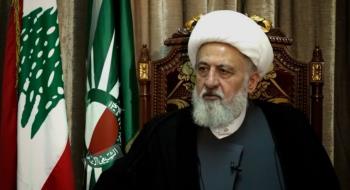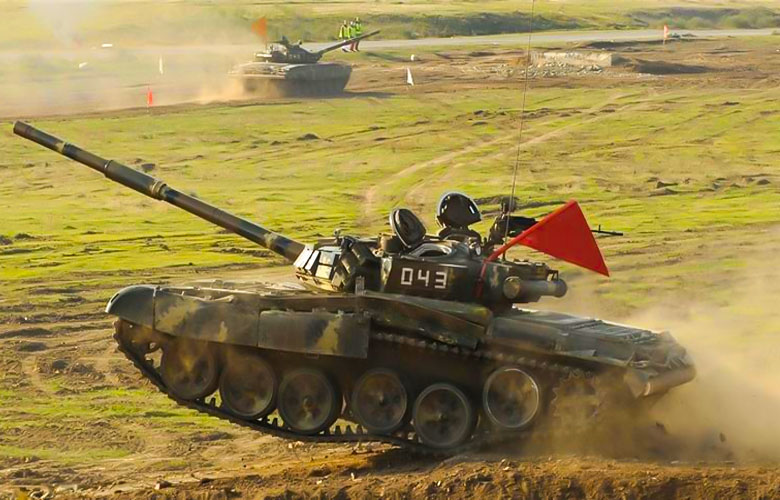Alwaght- Russian President Vladimir Putin has called for an immediate truce as Azerbaijan Republic said Saturday at least 12 of its soldiers were killed and a helicopter downed by Armenian forces, in a major escalation of violence over the Nagorno Karabakh region. In a sign that the situation was spiraling, Russian President Vladimir Putin called for an immediate end to fighting along the frontline, the Kremlin said.
"President Putin calls on the parties in the conflict to observe an immediate ceasefire and exercise restraint in order to prevent further casualties," Kremlin spokesman Dmitry Peskov told Russian news agencies.
Foreign Minister Sergei Lavrov and Defence Minister Sergei Shoigu held phone talks with their counterparts in Armenia and Azerbaijan to urge a de-escalation in the fighting. The surge in fighting over the disputed territory -- which separatist Armenian-backed forces captured from Azerbaijan in the early 1990s -- reportedly also claimed the lives of one Armenian and one Azeri civilian after the arch foes accused each other of unleashing heavy weaponry across the volatile front line.
Armenia accused Azerbaijan of launching a "massive attack along the Karabakh frontline using tanks, artillery, and helicopters" on Friday night. Azerbaijan, however, insisted it had counter-attacked after coming under fire from "large-caliber artillery and grenade-launchers".
Initial claims from the Armenian capital Yerevan were that the fighting involved Azerbaijani forces and Armenian-backed separatist forces, but Azerbaijan said it was battling "Armenian forces".
"Twelve Azeri servicemen were killed in action and a helicopter was shot down by Armenian forces," Azerbaijan's defense ministry said in a statement, adding that a tank had also been blown up on a mine.
The conflict has its origins in the early 20th century, although the present conflict began in 1988. The region sough to secede from the Azerbaijan Soviet Socialist Republic, before proclaiming independence after the USSR collapsed in 1991. As the war progressed, both post-Soviet republics entangled themselves into a protracted war.
The enclave of Nagorno-Karabakh is a historic region in the Lesser Caucasus range, in Azerbaijan. The majority of its population is Armenians. As of January 2013, the population was 146,600 people.
According to Armenian and Azerbaijani sources, there are different views of the history of the region. According to Armenia, in the beginning of the 1st millennium BC, Nagorno-Karabakh (the Armenian name – Artsakh) was under political and cultural influence of Assyria and Urartu. It was first mentioned in inscriptions of Sardur II, King of Urartu (763-734 BC).
In the early Middle Ages, Nagorno-Karabakh was part of Armenia, according to Armenian sources. Then, the majority of the country was occupied by Turkey and Persia. At the same time, Armenian princedoms (Melikdoms) in the region were partially independent. In the 17-18th centuries Artsakh princes spearheaded the fight for independence against Persia and Turkey.
According to Azerbaijani sources, Nagorno-Karabakh is one of the Azerbaijan’s ancient regions. The official version says that the name "Karabakh" originates from the 7th century and means the "black garden" in Azerbaijani. In the 16th century Karabakh was part of the Safavid Empire, and then became the independent Karabakh Khanate.
In 1813, Nagorno-Karabakh became part of the Russian Empire.
In May 1920, Soviet rule was established in the region. On July 7, 1923, the Nagorno-Karabakh Autonomous Region was established within the Azerbaijan SSR in 1923.
On February 20, 1988, at an emergency session of the regional deputies' council adopted appeals to the Supreme Councils of the Azerbaijan and Armenia, asking them to authorize the secession of Nagorno-Karabakh from Azerbaijan to Armenia.
The Soviet government and Baku rejected the appeal which provoked protests among Armenians in Nagorno-Karabakh and Yerevan.
On September 2, 1991, a joint session in Nagorno-Karabakh declared the creation of the Nagorno-Karabakh Republic. On December 10, 1991, several days before the USSR collapsed, a referendum was held in the region and 99.89 percent voted for full independence of Nagorno-Karabakh from Azerbaijan.
Baku designated the plebiscite as illegal and abolished the autonomy of the region. Shortly after, a military conflict erupted in which Azerbaijan tried to keep the region as its part while Armenian units fought for independence, backed by Yerevan and the Armenian diaspora from other countries.
Since 1999, regular bilateral and trilateral meetings have been held between the leaders of Armenia and Azerbaijan. The first meeting between Ilham Aliyev and Serzh Sargsyan took place on December 19, 2015 in Bern, Switzerland.
Azerbaijan has insisted on preserving its territorial integrity. Armenia has supported the interests of the self-proclaimed region, because the Nagorno-Karabakh Republic is not a party to the talks.
In 2015, political dialogue in the region was hampered, after tensions grew and the number of victims, especially among civilians, rose.



























